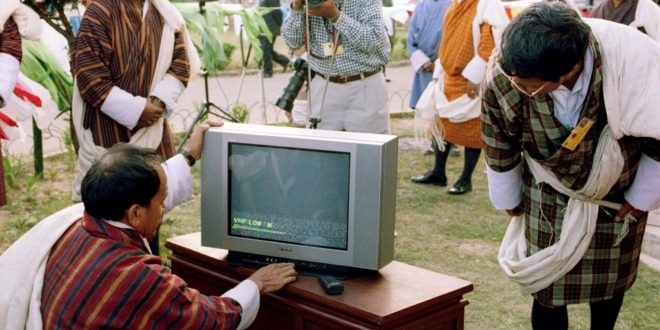Introduction:
Bhutan was the last country to introduce television. The introduction of television in Bhutan in 1999 marked a major turning point in the country’s history, bringing about both positive and negative changes. In this article, we will examine Bhutan’s journey with television, exploring its effects on the country’s culture and society, and the challenges of balancing modernization with cultural preservation.
Bhutan’s Cultural Roots:
Bhutan has a rich cultural heritage, rooted in Buddhism and the ancient traditions of the Himalayas. For centuries, Bhutan remained isolated from the outside world, preserving its unique cultural heritage. Despite modernization in recent decades, Bhutan still holds tight to its cultural traditions and beliefs.
The Arrival of Television:
In June 1999, Bhutan lifted its ban on television, becoming the last country in the world to introduce the medium. With the arrival of 46 cable channels, Bhutanese society was exposed to a new world, one that was incompatible with their traditional culture. This led to concerns about the potential negative impact of television on Bhutan’s cultural heritage.
Positive Impacts of Television:
Despite the concerns, television has also brought about many positive changes in Bhutan. It has played a significant role in educating the public, providing access to information and new ideas. Television has also put Bhutan on the world map, bringing attention to the country and its unique culture.
Negative Impacts of Television:
However, the introduction of television has also had negative impacts on Bhutanese society. A 2002 crime wave was attributed to the influence of television, which introduced new ideas and values that were not in line with Bhutanese culture. The impact of television on Bhutanese society raises questions about the balance between modernization and cultural preservation.
Balancing Modernization and Cultural Preservation:
The challenge for Bhutan is to find a balance between modernization and cultural preservation. The government has implemented measures to ensure that Bhutanese culture is not lost in the modernization process. For example, the government requires all television programs to be reviewed for content before being broadcasted, ensuring that the programs are in line with Bhutanese values.
Conclusion:
Television has had a profound impact on Bhutanese society and culture, bringing about both positive and negative changes. The challenge for Bhutan is to balance modernization with cultural preservation, ensuring that Bhutan’s unique heritage is not lost in the process. As Bhutan continues to develop and evolve, it will be interesting to see how it navigates the challenges of balancing modernization and cultural preservation.
